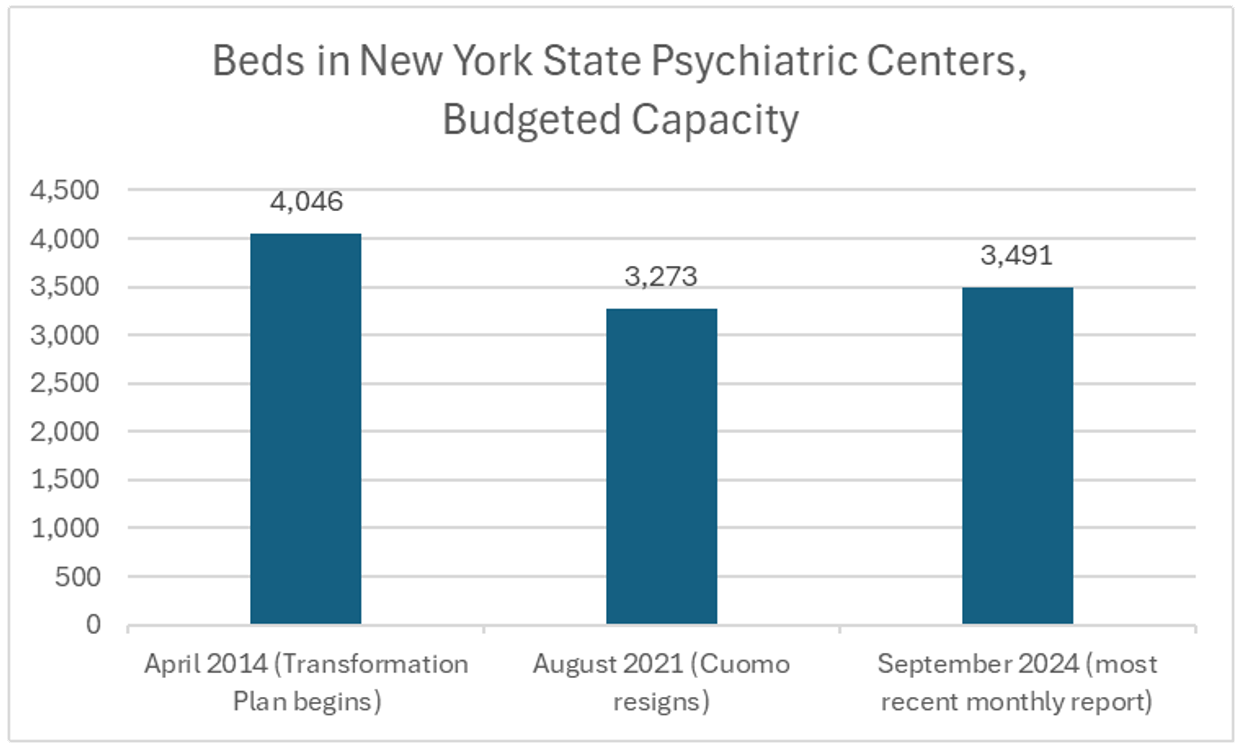Last week, New York’s governor and legislature settled on a budget for the fiscal year that technically began on April 1. One major sticking point was mental-health policy. Governor Kathy Hochul insisted on adding language to state law that would make it easier to commit people to psychiatric hospitals, initially meeting resistance from the state assembly and senate. The fight was harder than it should have been—but Hochul persisted and won, marking a meaningful step toward mental-health reform in New York.
More than anyone, Mayor Eric Adams deserves credit for the changes to state commitment law, which authorize hospitals to provide involuntary treatment for people incapable of meeting basic living needs, not just those who are dangerous. Since taking office, Adams has prioritized untreated serious mental illness and sought to move the city’s approach to it from a culture of abandonment to one of intervention. His vision took concrete form in the “Plan to Provide Care for Individuals Suffering From Untreated Severe Mental Illness Across NYC,” rolled out in November 2022. The plan outlined immediate administrative actions, a wish list of legal changes from the state, and a framework for justifying intervention.
Finally, a reason to check your email.
Sign up for our free newsletter today.
Adams argued that New York’s longstanding culture of abandoning the mentally ill stems from a misreading of state law. For years, police and other frontline workers have believed that they couldn’t intervene—even when encountering a visibly psychotic individual on the subway—unless that person was suicidal or violent. But, as explained in a state Office of Mental Health guidance issued in February 2022, that notion of “imminent dangerousness” as a prerequisite to action was not rooted in state law. According to the OMH, “persons who appear to be mentally ill and who display an inability to meet basic living needs” are eligible to be involuntarily evaluated, “even when there is no recent dangerous act.”
At Adams’s urging, Hochul’s budget codified this “basic living needs” standard in state law. The governor didn’t go as far as the “Supportive Interventions Act,” another proposed measure that would have expanded the dangerousness standard to include psychiatric (beyond physical) deterioration stemming from lack of treatment. Nonetheless, Hochul’s change sends a forthright message to police and other potential interveners: don’t wait until a person is violent or suicidal. The point was just as much to change the culture around intervention as to change the law.
Some officials and activists disapproved of the amendment. The respective chairs of the mental-health committees in the state senate and assembly, Samra Brouk and Jo Anne Simon, both opposed Hochul’s change, for example, as did famous civil liberties advocate Harvey Rosenthal, who denounced it as “one of the greatest expansions of involuntary treatment New York has seen,” predicting that the newly loosened commitment standard would lead to the state becoming “the coercion capital of the country.” That’s a strange assertion, given that nearly every other state’s commitment law already includes something like the basic-living-needs standard.
Effective implementation can’t be taken for granted. New York still lacks psychiatric hospital bed supply, which hasn’t recovered from cuts Governor Andrew Cuomo imposed through his devastating “Transformation Plan.”

The future of mental-health care in New York nevertheless looks promising. At the executive level, Hochul and Adams represent a resounding improvement over Cuomo and Adams’s predecessor Bill de Blasio. Polls consistently register overwhelming (approximately 90 percent) public support for expanded use of involuntary treatment.
For proponents of mental-health reform, this budget cycle highlights the importance of prioritization. Too often, untreated serious mental illness gets crowded out by other pressing issues. But as Hochul’s efforts prove, breakthroughs may not require much more than stubbornness.
Photos: Graeme Sloan for The Washington Post via Getty Images (left) / John Lamparski/Getty Images (right)
City Journal is a publication of the Manhattan Institute for Policy Research (MI), a leading free-market think tank. Are you interested in supporting the magazine? As a 501(c)(3) nonprofit, donations in support of MI and City Journal are fully tax-deductible as provided by law (EIN #13-2912529).
Source link


















